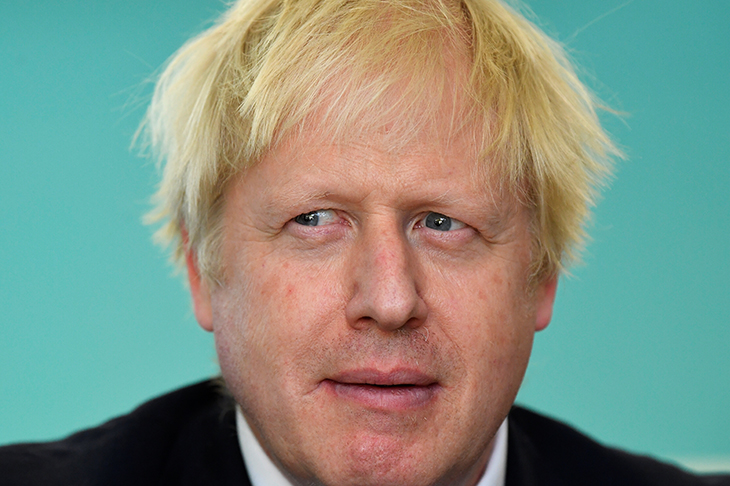An election might still be months away, but the parties have already made their big strategic choices. The Tories and the Liberal Democrats are betting that Brexit is the defining issue of our times and that its pull is strong enough to dissolve longstanding party allegiances. Jeremy Corbyn, meanwhile, is planning on fighting a much more traditional left vs right campaign. His second-referendum policy is almost an attempt to quarantine the issue of Brexit.
Since becoming leader, Boris Johnson has reshaped the Tory party in an attempt to make it fit for purpose in an era when politics is defined by Brexit. He has abandoned Theresa May’s tolerance of dissent on this issue. Instead, he has decided that the Tory position must be unambiguous — hence the decision to take the whip away from the 21 Tory Members of Parliament who attempted to block no deal. The price of admission for any Tory candidate is a willingness to support leaving with or without a deal.
The hope is that a clear pro-Leave position will both squeeze down the Brexit party, which is still polling in double digits, and enable the Tories to take a slew of Leave-voting seats in the north-east, the Midlands and Wales, areas that are traditionally Labour. Critics of the strategy point out that this is what May tried and failed to do in 2017. One crucial difference, however, is that Brexit seems genuinely in danger now in a way that it was not back then. If the Tories cannot form a government after the next election, it is hard to believe that Brexit will ever happen, given that Labour is committed to a second referendum and the Scottish Nationalists and the Lib Dems both want to revoke Article 50. This suggests that any second referendum would be heavily slanted against Leave, most likely by allowing 16-year-olds to vote and other such changes to the franchise.
A pro-Leave approach requires a different take on other issues too. When the PM summed up this week’s cabinet meeting he emphasized that the Tories must be ‘the people’s party’ and not just on Brexit. He stressed that the public’s priorities must be their priorities. The result of this is a Tory party that is less fiscally conservative than in the past and one that wants to focus on crime and the National Health Service. Johnson explicitly rejected the argument that the Tories shouldn’t talk about the health service on the grounds that it was traditionally a Labour issue.
The Liberal Democrats believe Brexit so defines politics now that it transcends all other issues. Indeed, they were the first of the traditional parties to reach this conclusion. The Lib Dems believe that their unambiguous support for Remain means they can pick up votes from the 48 percent regardless of whether they voted Labour or Tory in the past. Their confidence in this strategy can be seen in the fact that they are sending their shadow foreign secretary, Chuka Umunna, to stand in Cities of London and Westminster, a seat which they have never won and where they came third in the last election with a mere 11 percent of the vote. They regard the fact that it voted roughly 70 percent for Remain as more important than how the Lib Dems did there in 2017.
Johnson and the Lib Dems will both make much of their plans to bring this whole saga to an end. Johnson will stress that the UK is leaving, come what may. He will say that this will enable Britain to get on with life after Brexit, to concentrate on the domestic issues that have been neglected in the past few years. The Lib Dems simply plan to revoke Article 50, meaning that we would stay in the EU. These arguments will appeal to voters who just want Britain to stay or go; a recent poll suggested that 48 percent of voters didn’t care what happened with Brexit as long as the issue was resolved one way or the other.
Labour is taking a very different approach, It is committed to a second referendum, which means it can’t say it will bring all this to a rapid close. Labour’s current policy is deliberately ambiguous: it would seek to negotiate a new deal with Brussels and then decide whether to back that or Remain in a second referendum.
It is tempting to declare that Labour has not adjusted to the new reality of British politics. Before we do that, a note of caution: much the same was said in 2017 yet Labour managed to move the debate onto domestic issues with great success in that campaign. Corbyn will attempt to repeat this trick and hope that Labour tribalism does the rest. It will be more challenging this time, though. The next election will be about Brexit in a way that 2017 wasn’t. Back then, parliament had voted for Article 50 and wasn’t seeking to obstruct the referendum result; but over the past two years, Parliament has repeatedly voted against both a Brexit deal and leaving the EU without a deal. It is hard to escape the conclusion that if you are against both the Brexit deal and no deal, you are against leaving altogether.
With parliament currently prorogued, Johnson will try to regain control of the political agenda. He’ll spend the next five weeks using the prime ministerial bully pulpit to advance his arguments. This is the price that his opponents have to pay for blocking his request for a October 15 election. (They might not have to pay it though if the Supreme Court rules in their favor on Tuesday.) They were prepared to pay it because they think they have snookered him with their law demanding that he seek an extension if no deal has been agreed by October 19. They calculate that they can force him to either resign or request an extension, which would destroy his electoral strategy. However, No. 10 seems oddly relaxed about the new law.
Johnson wanted an October election because it offered both a way out of the Brexit impasse and fitted with his political strategy. By denying him that, his opponents have scored a tactical success and their extension legislation has put him in a bind. They have, though, also identified themselves as the ones who have prevented Brexit. Meanwhile, the prime minister has turned the Conservatives into an unambiguously pro-Leave party. That may well turn out to be the more significant development.
This article was originally published in The Spectator’s UK magazine. Subscribe to the US edition here.


























